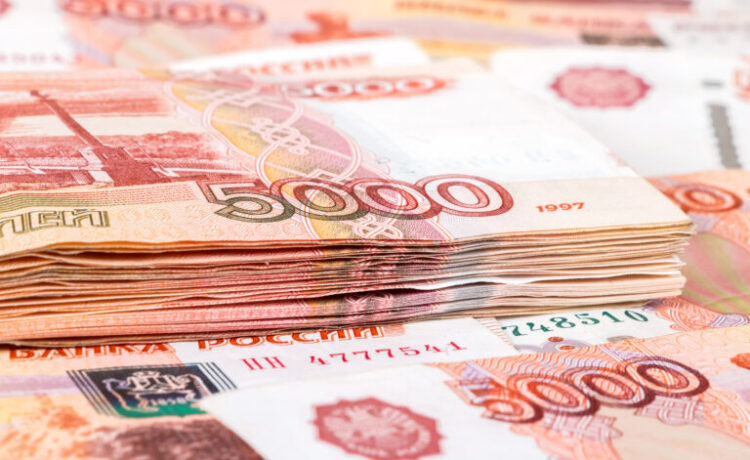Russia has halted trading in US dollars and the euro on its leading financial marketplace, the Moscow Exchange (MOEX). This action, taken in response to the latest round of US sanctions, is the latest development in the ongoing economic standoff between Russia and the West over the war in Ukraine.
The suspension of dollar and euro trading on MOEX is the latest step in Russia’s ongoing efforts to reduce its exposure to Western currencies and financial instruments since the imposition of sanctions in 2014 following the annexation of Crimea.
Over the past eight years, Moscow has been actively promoting the use of the Chinese yuan and other non-Western currencies in its international transactions, with the share of the yuan in Russia’s foreign exchange trading reaching a record high of 53.6% in May 2022.
This currency diversification strategy is a direct response to the growing threat of Western sanctions, which have repeatedly targeted Russia’s access to the US dollar and euro-denominated financial system.
By limiting the use of these “toxic” currencies, as they have been branded by Russian officials, the Kremlin aims to insulate its economy from the impact of future punitive measures and reduce its vulnerability to external financial pressures.
Implications for Market Participants
The suspension of dollar and euro trading on MOEX is likely to have a significant impact on a wide range of market participants, both within Russia and globally. Some of the key implications include:
Increased Costs and Volatility
The move will lead to higher commissions and wider bid-ask spreads for those seeking to convert between rubles and the affected currencies. This, combined with potential unfavorable exchange rate fluctuations, will result in increased costs for both Russian and international market participants engaged in cross-border transactions.
Disruption to Settlement Processes
The restrictions on dollar and euro trading could negatively affect settlement processes for foreign trade operations, as well as any transactions involving international counterparties. This could disrupt supply chains, trade flows, and the overall functioning of the Russian financial system.
Shift Towards Alternative Currencies
With the reduced availability of dollars and euros, market participants may be forced to increasingly utilize alternative currencies, such as the Chinese yuan, for their transactions. This could accelerate the ongoing trend of de-dollarization and the growing prominence of non-Western financial instruments in Russia’s economic landscape.
Challenges for Corporate Treasury Teams
Corporate treasury departments, both within Russia and in companies with exposure to the Russian market, will need to adapt their currency management strategies to navigate the new landscape. This may involve reassessing hedging practices, exploring alternative payment mechanisms, and closely monitoring exchange rate dynamics.
Sanctions, De-dollarization, and the Evolving Global Financial Order
The suspension of dollar and euro trading on MOEX is not an isolated event but rather a part of a broader trend of de-dollarization and the gradual erosion of the US currency’s dominance in the global financial system.
In response to the threat of sanctions and the perceived vulnerability of the Western-dominated financial system, countries and regions have been actively developing alternative payment and settlement mechanisms, such as the Sino-Russian Cross-Border Interbank Payment System (CIPS) and the Eurasian Economic Union’s Integrated Information System.
These initiatives aim to provide a more resilient and independent financial infrastructure, reducing the need for dollar and euro-denominated transactions.
The Emergence of Digital Currencies
The growing prominence of digital currencies, both state-backed and decentralized, is another factor shaping the evolving global financial landscape.
The potential for these digital assets to facilitate cross-border payments and bypass traditional banking systems has attracted the interest of countries seeking to reduce their reliance on the US dollar and the Western financial system.
Geopolitical Implications and the Multipolar World
The shift away from the dollar and euro is not merely an economic phenomenon but also has significant geopolitical implications.
As countries like Russia and China seek to reduce their vulnerability to Western financial coercion, the global financial order is becoming increasingly multipolar, with the potential for greater competition and tension between different financial blocs and spheres of influence.
Strategies for Corporate Treasury Teams
In the face of these sweeping changes in the global financial system, corporate treasury teams, both within Russia and internationally, will need to adapt their currency management strategies to ensure resilience and minimize disruption.
Corporations should consider diversifying their currency exposures beyond the traditional reliance on the US dollar and euro, exploring the use of alternative currencies, such as the Chinese yuan, as well as digital assets and emerging payment systems.
Enhancing Hedging Practices
Treasury teams may need to revisit their hedging strategies to account for increased volatility and the potential for disruptions in traditional currency markets.
This could involve exploring new hedging instruments and techniques to manage exchange rate risks.
Monitoring Regulatory Changes
Given the rapidly evolving regulatory landscape, it will be crucial for corporate treasury teams to closely monitor changes in sanctions, capital controls, and other policies that may impact their ability to conduct cross-border transactions and manage their currency exposures.
Collaborating with Financial Institutions
Engaging with financial institutions that have a strong presence in the Russian and non-Western financial ecosystems can provide valuable insights and support in navigating the changing landscape.
This collaboration can help identify emerging opportunities and mitigate risks.
Adapting to the New Global Financial Order
The suspension of dollar and euro trading on the Moscow Exchange is a significant development in the ongoing shift towards a more multipolar global financial system.
This move by Russia is a clear attempt to reduce its reliance on Western currencies and financial instruments, a trend that is likely to continue as countries seek to insulate themselves from the threat of sanctions and financial coercion.
For corporate treasury teams, both within Russia and internationally, this changing landscape presents both challenges and opportunities.
Adapting to the new realities will require a comprehensive review of currency management strategies, a willingness to explore alternative financial instruments and payment mechanisms, and a keen understanding of the evolving regulatory and geopolitical landscape.


